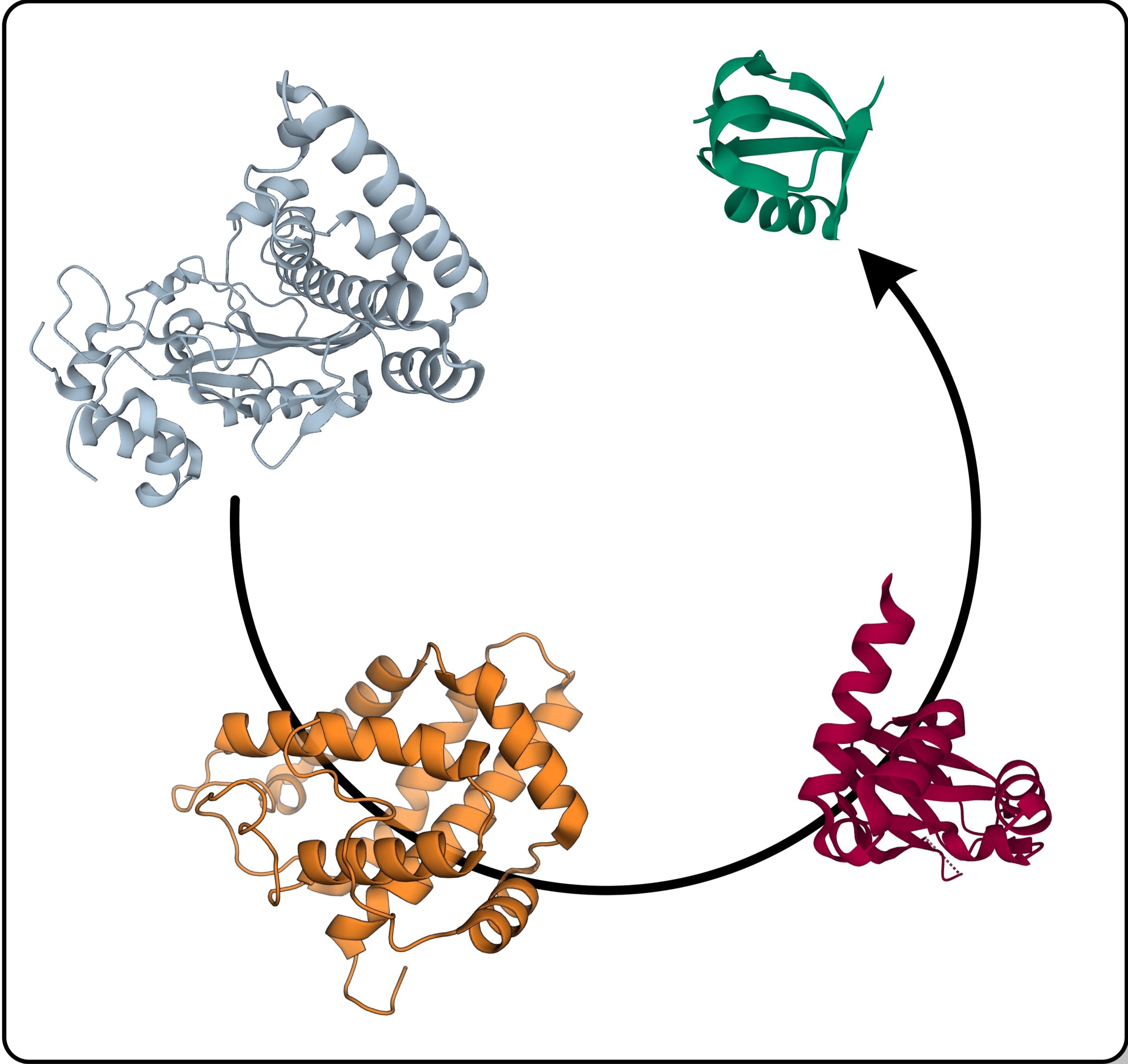
Join our vision in the following highly interdisciplinary programs
Biocatalysis and Molecular Evolution
This bidirectional program in organic synthesis presents an opportunity to cultivate unique, interdisciplinary expertise in synthetic chemistry, biochemistry, and enzymology.
Biocatalysis is revolutionizing molecular synthesis at the academic and industrial scales. Through mechanism-based design, computational protein design tools and the use of directed evolution, we will explore novel enzymological pathways rarely seen in the natural world. The resulting new, practical enzymes will aim to solve longstanding challenges in asymmetric catalysis and introduce enzymatic activities unknown in nature.
Biocatalysis and Synthetic Methodology:
Advancing Molecular Construction
The ‘Organic Chemistry of Evolution’:
Exploring Molecular Evolution Beyond Biology
Numerous advancements in chemistry, including mechanistic principles, reaction development, and supramolecular assembly, have been achieved by emulating natural processes. However, mimicking evolution, the most fundamental process in biology, has remained elusive to chemists.
A collection of nucleic acids and proteins inside a living entity is the only arrangement where the codes and definitions of evolution exist. What, then, constitutes 'molecular evolution' outside of this framework? What maybe its rules and diagnostic criteria? Can some of these be satisfied by a chemical scheme of reactants and products? In that case, what principles are to be in operation to observe evolutionary behavior? The topic is inspired by the molecular origins of life but is unrestricted by it. Considering the vast chemical space and the array of reagents and reaction conditions available, organic chemists are well-equipped to investigate such questions in their most general form. Uncovering the principles for the 'synthesis of evolution' will be chemistry’s next quantum leap. This program welcomes theoreticians and experimentalists to examine this frontier topic through the lens of synthetic organic chemistry.
The group is interested in fundamental questions of enzyme structure and function, particularly the correlation of enzyme length with various functional outputs including catalysis, dynamics, globularity and allostery.
Can enzymes be shorter and still function? What are the lower limits for the sequence length of a functional enzyme? How many residues are strictly necessary for creating a protein fold with high catalytic activity? In the earliest periods of biochemical evolution, what did the first enzymes look like? Contrarywise, how did the first biocatalysts evolve? What were the evolutionary pathways by which earliest chemical catalysts increased in complexity to larger polypeptides and finally to enzymes?
The program will investigate this poorly understood area with novel directed evolution approaches and will answer longstanding classical questions in protein structure and peptide evolution.
Investigating Fundamental Relationships in Enzyme Structure and Function
Engineered Enzymes as Next-Generation Therapeutics
A major thrust within the group is to develop new therapeutic technologies to solve pharmaceutical challenges. We will focus on engineering metabolic enzymes that can be introduced in the body to complement drug action. By combining the power of enzyme specificity for precise chemistry, this technology hopes to transform drug development by providing a rational method to modulate efficacy and safety. This highly collaborative program will combine cutting-edge protein engineering with real-world medical applications.









